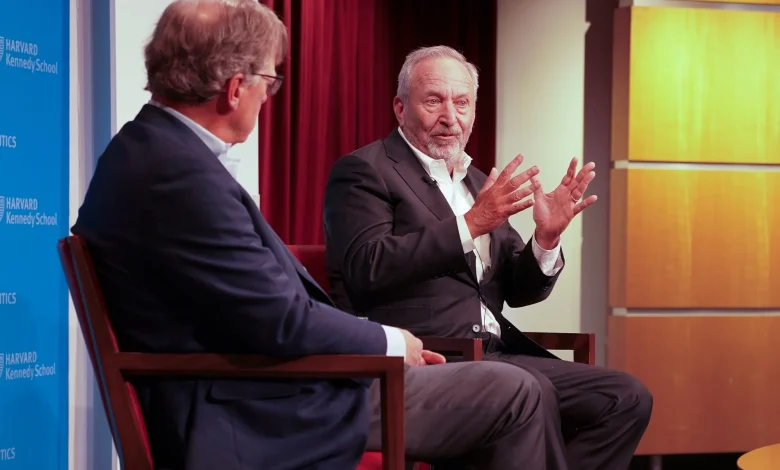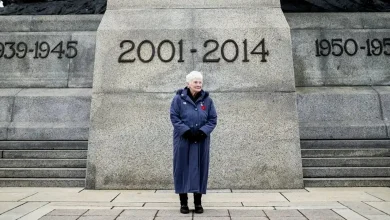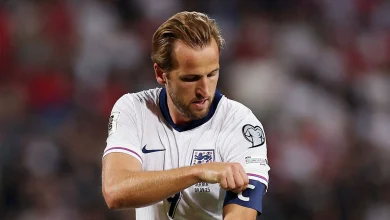Email Cache Reveals How Former Harvard President Larry Summers Stayed in Jeffrey Epstein’s Orbit

Updated November 12, 2025, at 6:57 p.m.
Former Harvard President Lawrence H. Summers maintained a close personal relationship with convicted sex criminal Jeffrey E. Epstein until just months before his death in August 2019, according to emails released by Congress on Wednesday.
The cache, released by Republicans on the House Oversight Committee, details how Summers and Epstein regularly corresponded about women, politics, and Harvard-linked projects. They appear to have maintained a close correspondence as late as March 2019 — just months before Epstein’s arrest and death.
The messages span at least seven years and blend professional dealings with candid, sometimes confessional exchanges — offering the clearest picture yet of how Epstein’s influence lingered inside Harvard’s inner orbit long after the University claimed to cut ties.
The Crimson reviewed hundreds of messages between the two men, drawn from more than 23,000 documents released by the Oversight Committee. Summers does not appear to reference Epstein’s sex crimes in any of the messages reviewed by The Crimson.
The correspondence reveals that Epstein had planned to donate $500,000 to Poetry in America — a television show and digital initiative spearheaded by Harvard English professor emerita Elisa F. New, who is married to Summers. In 2016, Epstein donated $110,000 to Verse Video Education, the non-profit organization which funds the initiative.
Summers reportedly met with Epstein numerous times between 2013 and 2016 and sought his advice on philanthropic projects linked to New, according to a 2023 Wall Street Journal article.
Summers — who is currently a University Professor, Harvard’s highest faculty distinction — wrote that his relationship with Epstein reflected a lapse in judgment in a Wednesday statement to The Crimson.
“I have great regrets in my life,” he wrote. “As I have said before, my association with Jeffrey Epstein was a major error of judgement.”
In one 2014 thread, New and Epstein discussed the potential $500,000 contribution to New’s project. According to an email from New, Epstein and Summers had previously talked about the idea. She then asked Epstein for feedback and edits on her draft budget.
“It will absolutely be a Harvard gift,” she told him, adding that the donation “will count as Campaign success.” Harvard’s $9.6 billion capital campaign was ongoing between 2013 and 2018.
The proposal outlined a $500,000 contribution to support production costs and expand the project’s reach. The planned funding would underwrite interviews with prominent figures — including Bill Clinton, Richard Dawkins, and Ray Dalio — and was intended, New wrote, to “give me discretion over its disbursement to Harvard and WGBH.”
New wrote that Summers had told her that Epstein and “a friend would like to contribute.”
A spokesperson for Summers told the Wall Street Journal in its 2023 report that New’s nonprofit “regrets accepting funding from Epstein.” The group later made a contribution “exceeding the amount received, to a group working against sex trafficking,” according to the spokesperson.
University spokespeople declined to comment on this article, referring The Crimson to Harvard’s 2020 report on its ties to the financier. By 2008, Harvard had stopped taking contributions from Epstein, according to the University’s report.
In dozens of emails, Summers — corresponding from his personal account — also appears to have written to Epstein with ease about his personal life. At times, he confided in Epstein about his relationship with an unnamed woman, referring to the topic and his requests for advice as the “dear Abby issue.”
He recounted a conversation between himself and the woman to Epstein, telling him that at one point it had turned tense.
At one point, he told Epstein, the woman brushed him off with the phrase “I’m busy.” Summers told Epstein that he responded to the woman by telling her “awfully coy you u are.” Summers then asked her, “Did u really rearrange the weekend we were going to be together because guy number 3 was coming,” he wrote to Epstein.
“I dint want to be in a gift giving competition while being the friend without benefits,” Summers recounted to Epstein, adding that “she must be very confused or maybe wants to cut me off but wants professional connection a lot and so holds to it.”
Epstein supported Summers’ response, saying that the woman was making Summers “pay for past errors” but “no whining showed strength.”
The exchange is one of dozens showing a level of candor that stands out even in the context of Epstein’s wide network of powerful acquaintances. Across years of messages, the two men arranged introductions, exchanged gossip about global politics, and referenced Harvard-linked projects that blurred the boundary between Cambridge and Epstein’s private world.
Summers’s connection to Epstein has been long documented, but the newly released messages offer the most detailed account yet of the depth of their relationship. Epstein donated millions of dollars to Harvard during Summers’s presidency from 2001 to 2006. The two continued to meet regularly after Epstein’s 2008 conviction for soliciting a minor, despite the University’s public claims that it had severed ties.
His communications with Summers’ longtime aide and spokesperson, Kelly Friendly, reflected a similar familiarity. In January 2014, Friendly emailed Epstein from St. Thomas — an island near Little St. James, which served as a home base for the financier’s sex trafficking operations — telling him that she and her family were stranded.
“We would be so grateful for any help you could provide,” she wrote, in a sequence of messages that list the names of her husband and two children. “You may have met him when he was President Clinton’s aide.”
Epstein replied within an hour: “my friend andrew farkas has a pretty full plane to ny tomorrwo but can take 1 or 2 of you. i can call other hotels wher we have pull.. my cars and drivers are at your disposal.”
The next day, Friendly asked Epstein whether she and her 11-year-old daughter could fly out of the island with Farkas, a real estate mogul who has donated millions of dollars to Harvard over the years.
Epstein replied within hours, instructing an assistant to “please organzie kelly to have use of the mini van. today.”
Soon after, Friendly confirmed, “Ann brought us the car. It’s wonderful, thank you so much. We are so grateful for your generosity.”
Even after returning home, Friendly wrote again to thank him.
“Many, many thanks for your overwhelming generosity,” she wrote, adding that she and one of her daughters “flew home today with Mr. Farkas and his family. They took very good care of us and they couldn’t have been nicer.”
Friendly wrote that her husband and other daughter “are still stuck in St. Thomas, enjoying the use of your car. We are extremely grateful for everything you have done for us. Happy New Year and hope to see you next time you are at Harvard.”
Epstein responded amiably: “glad it worked out. if you husband woudl like to see the island this week i will arrange it.” Friendly replied that her husband and a daughter “would love to come see the island!”
Friendly did not immediately respond to a request for comment on Wednesday afternoon.
Epstein and Summers also corresponded about people in Epstein’s network visiting Harvard’s campus. In one October 2016 exchange, he asked Summers whether someone from Harvard’s development office — the group responsible for raising funds from donors — could show a friend referred to as “Rothschild” around Harvard.
Summers replied, “Yes. Let’s briefly discuss. Can u have her write me.”
The same thread included a stray political aside from Summers — an early-morning message asking Epstein, “How plausible is idea that Trump is real cocaine user?”
It was one of several moments when their correspondence drifted into politics. The two traded comments about world leaders and campaign figures, with Summers offering speculation and Epstein responding in terse, familiar replies.
In late 2016, Epstein introduced Summers to Karim Wade, a former Senegalese minister then living in exile in Qatar. Summers appeared confused about whom he was meeting, writing to Epstein, “Who is the guy you have set me up with?”
In the same email, Summers warned Epstein that he was not interested in projects involving the Trump administration. “Spend zero effort on anything about me w trump,” he wrote. “Seeing his approach to conflict of interest, his Putin proximity, and his mindless response on Castro death I’m best off a million miles away.”
Epstein replied that Wade was the son of the president of Senegal and “one of the most important figures in west africa.”
In response, Summers wrote that it was important to keep certain relationships at distance, at least in public.
“Always quiet advice to anybody who can use it,” he wrote. “Try always discreet. If u become associated publicly w something the reputations converge.”
—Staff writer Dhruv T. Patel can be reached at dhruv.patel@thecrimson.com. Follow him on X @dhruvtkpatel.
—Staff writer Cam N. Srivastava can be reached at cam.srivastava@thecrimson.com. Follow him on X @camsrivastava.





